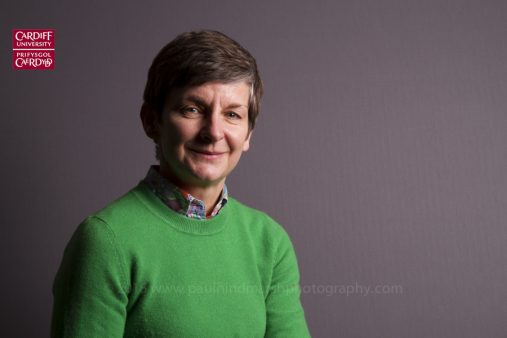Cardiff to Rio
3 May 2016
As the Rio 2016 Olympic Torch Relay begins its journey around Brazil today, in a series of short features we’re exploring Cardiff’s University’s contribution to the global sporting landscape.

PROFESSOR LAURA MCALLISTER (PhD 1995, Hon 2013) – FORMER WALES INTERNATIONAL FOOTBALLER AND CHAIR OF SPORT WALES
Sport, not just football, has given me so much in life. Aside from learning about myself and what makes me tick, I couldn’t be prouder of my 24 caps for Wales and being team captain. When I retired from playing, I didn’t feel I had the time to go down the coaching route so becoming involved in sports governance was an obvious and attractive route for me to follow.
In my role at Sport Wales, I attempt to drive and challenge the leadership to become even better and achieve more successful results. Clearly, there are regular, practical things such as chairing the Board and driving Board improvements with the recruitment of new members and ensuring there is proper induction and Board development. I am also there to assist and be a critical friend to the CEO and the Senior Management Team; we meet regularly and talk almost every day to ensure our strategies are on track. I am the first point of liaison with the Sports Minster at Welsh Government and sit on the Board of UK Sport. I also do a lot of media and keynotes, with the intention of driving up the profile of sport and making it more accessible to a wider audience.
I’m hugely excited about Wales’ prospects in Rio! We’re a proud sporting nation which has consistently punched above its weight on the elite sporting stage. But things have changed – we are no longer surprised when we medal. We expect it and we work hard for it. Our home grown talent has behind it a well-oiled machine of expert coaches and support teams.
RHYS SHORNEY (BSc 2004, MSc 2014) – BRITISH SWIMMING PHYSIOTHERAPIST
Prior to competition, the role of a sports physiotherapist will vary with different athletes. Some want assistance with preparation, others not. In most cases, our role is very delicate – we are often the last people to see the athlete before competition.
When it comes to the competition itself, the most pressing factor is an immediate time pressure. We often find ourselves working in situations where the available treatment time is limited, and decisions need to be made quickly and accurately.
Swimming, like most sports, has a whole body requirement – but performing over a million arm revolutions a year can take its toll on the soft tissue and joints in the shoulders.
Spinal complaints are equally common as athletes attempt to control rotational forces at intensity whilst suspended in a changeable environment. These areas are particularly susceptible to injury, and the quality of treatment can make or break a competitor’s event.
Every decision that is made regarding the development and management of the athlete is calculated, discussed and integrated into the overall training plan – often with target competitions years away. This requires support staff who completely understand their roles and professional remits and have a mutual respect for how their interventions affect the input of others.
This summer, I am once again part of the swimming team heading out to Rio. I’m hugely excited to be able to help the team and the athletes prepare for competition and recover optimally – and, hopefully, to play a small part in helping our competitors to realise their full potential when it absolutely matters most.
Photography by Paul Hindmarsh
- April 2024
- March 2024
- February 2024
- January 2024
- December 2023
- November 2023
- October 2023
- September 2023
- August 2023
- July 2023
- June 2023
- May 2023
- April 2023
- March 2023
- February 2023
- January 2023
- November 2022
- October 2022
- September 2022
- August 2022
- July 2022
- June 2022
- May 2022
- April 2022
- March 2022
- February 2022
- January 2022
- December 2021
- November 2021
- October 2021
- September 2021
- August 2021
- July 2021
- June 2021
- May 2021
- April 2021
- March 2021
- February 2021
- January 2021
- December 2020
- November 2020
- October 2020
- September 2020
- August 2020
- July 2020
- June 2020
- May 2020
- April 2020
- March 2020
- January 2020
- December 2019
- November 2019
- October 2019
- September 2019
- August 2019
- July 2019
- May 2019
- April 2019
- March 2019
- February 2019
- January 2019
- December 2018
- November 2018
- October 2018
- September 2018
- August 2018
- July 2018
- June 2018
- May 2018
- April 2018
- March 2018
- February 2018
- December 2017
- November 2017
- October 2017
- September 2017
- August 2017
- July 2017
- June 2017
- May 2017
- April 2017
- March 2017
- February 2017
- January 2017
- November 2016
- October 2016
- September 2016
- July 2016
- June 2016
- May 2016
- April 2016
- March 2016
- February 2016
- January 2016
- December 2015
- November 2015
- October 2015
- September 2015
- August 2015
- January 2015
- December 2014
- November 2014
- September 2014
- August 2014
- May 2014